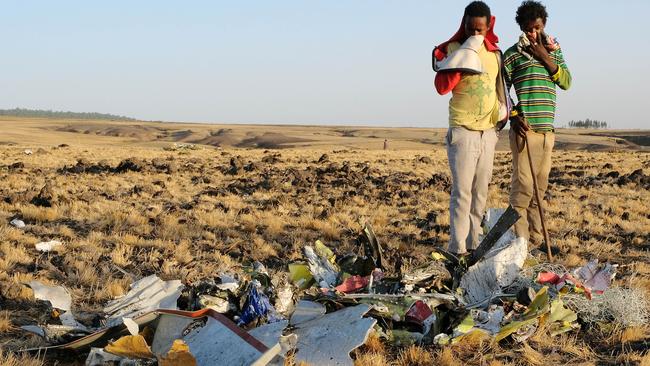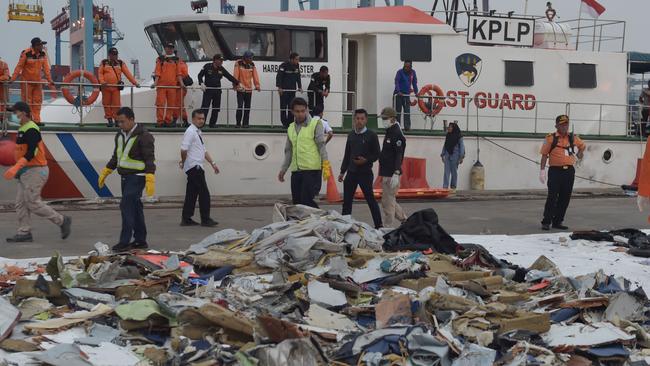Boeing must come clean after horror plane crash
It’s not paranoia to say you don’t want to board a 737 Max 8 after the jet’s second crash in five months killed everyone on board on Sunday. Boeing must do the right thing and recall its planes, writes Miranda Devine.
Look, if an aviation expert as well regarded as Neil Hansford is saying he won’t fly in the new Boeing 737 Max 8, there’s a problem.
It’s not paranoia to say that I don’t want to fly in one either, until Boeing comes clean on what’s going on after the fuel-efficient jet’s second crash in five months killed all 157 people on board an Ethiopian Airlines on Sunday.
MORE FROM MIRANDA DEVINE: Governments can’t be trusted with our private info
That crash, which happened shortly after takeoff from Addis Ababa, is eerily similar to last October’s crash of an Indonesian Lion Air Boeing 737 Max 8 which killed 189 people.
Both times, the pilots tried to return to the airport a few minutes after takeoff after experiencing what has been described as “drastic speed fluctuations” during ascent.

Investigators reportedly have found that a software upgrade created a problem with a sensor aboard the Lion Air flight, activating an automatic command to lower the plane’s nose, which the pilots struggled to combat.
MORE FROM MIRANDA DEVINE: The new law that will actually make us less safe
Now another plane has gone down, and you have to suspect the worst. If this was a car with faulty airbags the manufacturer would be recalling it, but somehow we’re supposed to carry on as usual and trust Boeing?
No thanks.
Tonight, Australia’s Civil Aviation Safety Authority followed the lead of Singapore, China and Indonesia and suspended operations of the Boeing 737 Max 8 plane here.
As the pressure mounted Boeing earlier today announced it will install a new software upgrade to the 737 MAX 8 to make an “already safe aircraft even safer”.
But if these highly automated planes are having teething problems that necessitate urgent software patches, Boeing should recall them, rather than treating flights with real live passengers as a debugging routine.

For years aviation experts and pilots have debated whether planes are becoming too automated for pilots to control in emergencies, in which computers override humans. The associated risk is that as planes become more automated, financially strapped airlines are devaluing pilot skills.
And it’s not hard to see that the imperative to save fuel in aircraft is so strong in an era of climate alarm that it could trump passenger safety.
But while death from climate change is a theoretical threat in a dubious time frame, flying in a metal cylinder in the sky might just kill you tomorrow.
If Boeing won’t do the right thing and recall its planes, then it’s a case of flyer beware.


